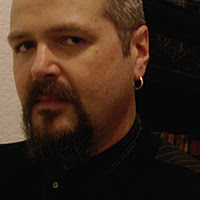I always kinda felt that was fairly obvious, but hadn't taken the time to explicate the reasons for it. Fiske successfully highlights it with a number of forehead-clapping observations.
Characters are "encodings of ideology" (Fiske 1092). The man is the source of knowledge, therefore superior. The woman is subtly submissive and refers to domestic activity even when not engaged in it. The heroes emanate more class and cooperation than the villains, even to the point of makeup and dress differences (Fiske mentions the application of lipstick specifically). Even the set decoration and the camera lens are used to portray characters in a certain light. I imagine movies do this same thing, but movies seem more likely to break through barriers than television series.
This raises the question of what happens when movies or television resist the typical portraying of characters in this manner. Does it "feel wrong" if the villain is seen as classy and sensible and the hero is inferior? I do not mean blatant examples of this, but the subtle clues mentioned above: camera distance, male/female verbal intercourse, dress and makeup.
Works Cited: Fiske, John. "Television Culture." (From posted PDF article)

No comments:
Post a Comment